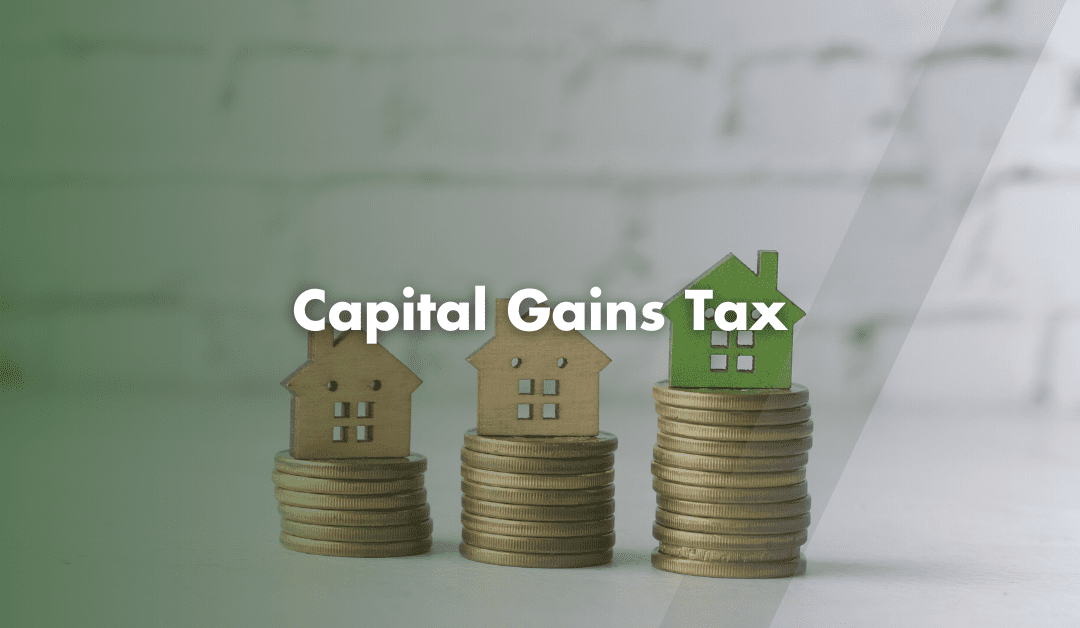Capital Gains Tax (or CGT) is a tax on the profit you make when selling or disposing of an asset that has increased in value. This is different from Income Tax because it applies only when you sell an asset, rather than on regular earnings. The tax applies only to the gain, not the total amount received from the sale.
For example: If you bought an art piece for £10,000 and sold it for £30,000, the taxable gain would be £20,000.
When Do You Pay Capital Gains Tax?
Capital Gains Tax applies when selling or disposing of chargeable assets, including:
- Personal possessions worth over £6,000 (excluding cars)
- Property that is not your main home
- Your main home if you have let out, used it for business or is exceptionally large
- Shares not held in a Individual Savings Account (ISA) or Personal Equity Plan (PEP)
- Business assets
Disposing of an asset does not always mean selling it. Gifting, transferring, swapping or even receiving compensation for lost or destroyed assets can trigger the tax.
You do not usually pay Capital Gains Tax on gifts to a spouse, civil partner or charity. There are also exemptions for ISAs, Premium Bonds, UK Government Gilts/Loans and winnings from gambling or lotteries.
Capital Gains Tax Allowance and Rates for 2024/25
Everyone has a tax-free allowance, called the Annual Exempt Amount. For the 2024/25 tax year, this allowance is:
- £3,000 for individuals
- £1,500 for trusts
If you sell assets jointly with a partner, you can use both allowances, effectively doubling the tax-free amount. However, if you do not use your allowance in a given tax year, you cannot carry it forward to the next year.
The amount of Capital Gains Tax you pay depends on your taxable income and the type of asset:
- Basic Rate taxpayers pay 18% on residential gains and 10% on other assets
- Higher Rate taxpayers pay 24% on residential gains and 20% on other assets
- Carried Interest (Investment Fund Gains) currently stands at 28%, which will rise to 32% in April 2025
For those with a mix of residential property and other assets, the tax applies at the highest applicable rate first.
How to Calculate Capital Gains Tax
1. Determine your gain by subtracting the original purchase price from the selling price.
2. Deduct any allowable expenses, which can include fees for solicitors, estate agents, improvement costs and Stamp Duty.
3. Apply your tax-free allowance by subtracting £3,000 from your total gain.
4. Add the remaining gain to your taxable income. If this pushes you into a higher tax bracket, you may pay different rates on different portion of the gain.
For example: If your taxable income is £20,000 and your taxable gain is £12,600, you first subtract the £3,000 allowance, leaving £9,600 subject to Capital Gains Tax. If this keeps you within the Basic Tax Band of £37,700, you will pay 18% on the gain.
Reducing Your Tax Bill
There are several legal ways to reduce the amount of Capital Gains Tax you owe:
- Use your tax-free allowance
- Transfer assets to a spouse or civil partner
- Invest through an ISA or pension
- Offset losses against gains
- Make pension contributions
Reporting and Paying Capital Gains Tax
You must report and pay Capital Gains Tax if your total taxable gains exceed your allowance. The deadline depends on the type of asset:
- Residential Property – Report and pay within 60 days of sale completion
- Other Assets – Report in your Self Assessment tax return by 31st January following the end of the tax year
If you fail to report your Capital Gains Tax on time, you may face penalties and interest charges. Using the HMRC real-time service can help report and pay the tax immediately.
Overseas Assets and Non-Residents
If you own overseas assets, you may still have to pay Capital Gains Tax if you are a UK resident. The same applies if you are a non-resident but dispose of UK property or land. Special rules apply to individuals with a domicile outside the UK.
Non-residents must report any sale of UK property or land to HMRC, even if they owe no tax. If you move abroad but return to the UK within 5 years, you may need to pay tax on assets you sold while you were away.
Contact Us
We are not just accountants; we are Chartered Accountants with one of the most reputable and premium accounting bodies. We are registered and regulated by ACCA; so you can rest assured that you are in good hands. Knowing this, don’t hesitate to get in touch with us if you require assistance: Pi Accountancy | Contact Us

